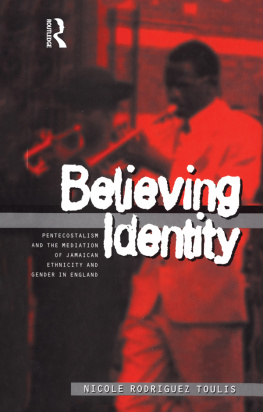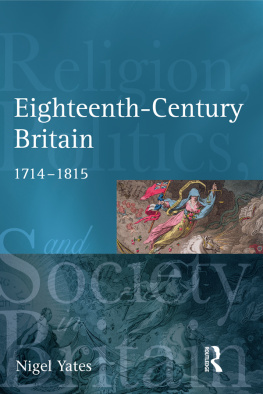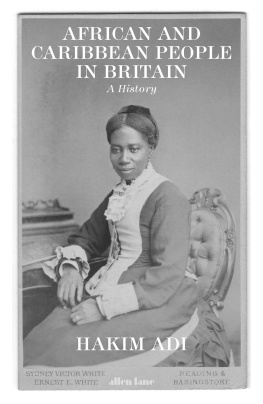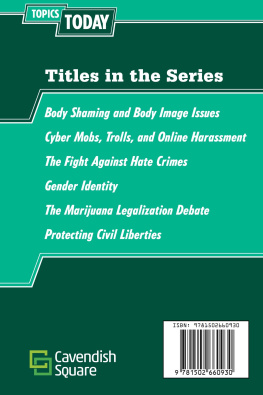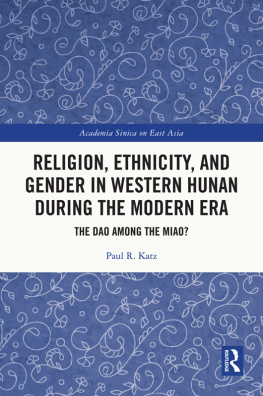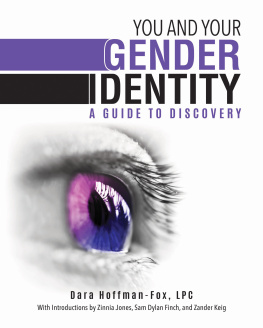Believing Identity
EXPLORATIONS IN ANTHROPOLOGY
A University College London Series
Series Editors: Barbara Bender, John Gledhill and Bruce Kapferer
First published 1997 by Berg Publishers
Published 2020 by Routledge
2 Park Square, Milton Park, Abingdon, Oxon OX14 4RN
605 Third Avenue, New York, NY 10017
Routledge is an imprint of the Taylor & Francis Group, an informa business
Nicole Rodriguez Toulis 1997
All rights reserved. No part of this book may be reprinted or reproduced or utilised in any form or by any electronic, mechanical, or other means, now known or hereafter invented, including photocopying and recording, or in any information storage or retrieval system, without permission in writing from the publishers.
Notice:
Product or corporate names may be trademarks or registered trademarks, and are used only for identification and explanation without intent to infringe.
Library of Congress Cataloging-in-Publication Data
Toulis, Nicole Rodriguez.
Believing identity: Pentecostalism and the mediation of Jamaican
ethnicity and gender in England / Nicole Rodriguez Toulis.
p. cm. --(Explorations in anthropology)
Includes bibliographical references and index.
ISBN 1-85973-104-X (alk. paper). --ISBN 1-85973-109-0 (pbk.: alk.
paper)
1. Pentecostalism--Great Britain--Case studies. 2. Jamaicans--
Great Britain--Ethnic identity--Case studies. 3. Jamaicans--Great
Britain--Religion--Case studies. 4. Women, Black--Great Britain--
Ethnic identity--Case studies. 5. Women, Black--Great Britain--
Religious life--Case studies. 6. Blacks--Great Britain--Ethnic
identity--Case studies. 7. Blacks--Great Britain--Religion--Case
studies. 8. Great Britain--Religious life and customs--Case
studies. I. Title. II. Series.
BR1644.5.G7T68 1997
305.4889697292042--dc21
96-45031
CIP
British Library Cataloguing-in-Publication Data
A catalogue record for this book is available from the British Library.
Typeset by JS Typesetting, Wellingborough, Northants.
ISBN 13: 978-1-859-73104-8 (hbk)
For Verna whose spirit was and remains indefatigable and Bobbie one generation out of slavery who told me stories
The study on which this book is based was made possible by the emotional and financial support of numerous people. I would like to thank MA, AA, LJ, OP and the members and Pastor of the King Street New Testament Church of God for welcoming me into their fellowship and homes, enduring hours of questioning and for providing constant spiritual support. To my family, Vasilios, Gladys and Tad, who sacrificed for me and supported and encouraged me, thank you. My appreciation also goes to my friends for their endless solace and forbearance.
The research, thoughts and arguments presented in this study took shape through cumulative interactions with many Fellows and fellows. I am indebted to Sue Benson for her unfailing enthusiasm, support and patience during research. I am especially grateful to Esther Goody and Malcolm Ruel for their advice and for helping me to organize my initial thoughts after the original period of fieldwork. I also thank Keith Hart, Sandra Wallman, Tomoko Hamada, Virginia Kerns, Connie Sutton, Greg Johnson, Daniel Bates, Phil Kilbride, Gerald Creed and my fellows Kristi Norget, Simon Coleman, Andre Czlegdy-Nagy, Louise de la Gorgendiere, David Sneath, Vinay Srivastava, and Arlene Davila for taking an interest, teaching me, listening and inspiring me to think that little bit harder. Immeasurable gratitude also goes to Professor Alan Macfarlane for all of the above, for sage counsel and for imparting optimism.
The background study and research presented in this book was made possible by an Overseas Research Student award from the Committee of Vice Chancellors and Principals of the Universities of the United Kingdom, the Amy Mary Preston Read Fund of the University of Cambridge, the Audrey Richards Fund of the Department of Social Anthropology, an External Studentship and a Hardship loan from Emmanuel College, and a dissertation preparation grant from the Radcliffe-Brown Memorial Fund of the Royal Anthropological Association of Great Britain.
NRT
This book contains many passages of direct quotation and reported speech. The source of each quote is given in parentheses following the quote, e. g. (Sermon) or (Sister). Verbatim quotes are indicated with single quotation marks, paraphrased quotes taken from fieldnotes with double quotation marks. Since much of the recorded speech is a combination of patois and standard British English I have not altered the grammatical construction of sentences, verb tenses or prepositions; [sic] is used sparingly for variant spellings and to retain clarity in ambiguous constructions.
Following current usage I use the terms Black or African-Caribbean for persons of Caribbean origin in Britain. The term migrant is preferred to immigrant out of deference to the feelings of the people. While the original name of the denomination is used with permission, all names of persons and local congregations have been replaced by pseudonyms. The term member is used interchangeably with saint throughout. A list of commonly used abbreviations is provided.
NRT
| COG | Church of God, Cleveland Tennessee, USA |
| LM | Ladies Ministry, an auxiliary of the churchs Ladies Ministry department |
| MF | Mens Fellowship, an auxiliary of the churchs Mens Fellowship association |
| NCWP | New Commonwealth and Pakistan |
| NTCG | The New Testament Church of God, an affiliate of the Pentecostal denomination of the Church of God in Cleveland, Tennessee |
| YALM | Young Adult Ladies Ministry, an auxiliary of the churchs Ladies Ministry department |
| YLM | Young Ladies Ministry, an auxiliary of the churchs Ladies Ministry department |
| YMF | Young Mens Fellowship, an auxiliary of the churchs Mens Fellowship association |
Racism is a bitter, ugly, vicious spirit. But it is in the world. A person that is not a Christian will use the same thing to combat it resentfulness, bitter anger. These attitudes are still part of the world, not of Christ. The Christian who supposed to be having and practicing the spirit of Christ its not that he accept it, but he is instructed from the word of God that he should not offer back revenge should leave this to God. Hence, though he dont accept it, but he dont fight back with the same spirit. In other words that [racism] is the spirit of the devil, this world. As a Christian you would say to yourself Im living on a higher plane than that. Hence, you are able to treat that person with love, with understanding. Not that you accept it, but you dont retaliate. Now we have this to live with in Britain, because personally we detest racism know its wrong, but you cant use another wrong trait or attitude to combat it. So we using our God . Theyre in a polite, enlightened Britain people would come talking with you they kind of feel well you know, because youre not a White person youre not equal. And theyll try to put over you, hoodwink you, that you kind of feel they are so with you. You know in your heart they are looking out some good thing for themself to see if they can get across, take disadvantage . Its a wicked, vicious spirit that want to strip some people from their dignity. (An African-Caribbean Pentecostal Pastor in Britain)

